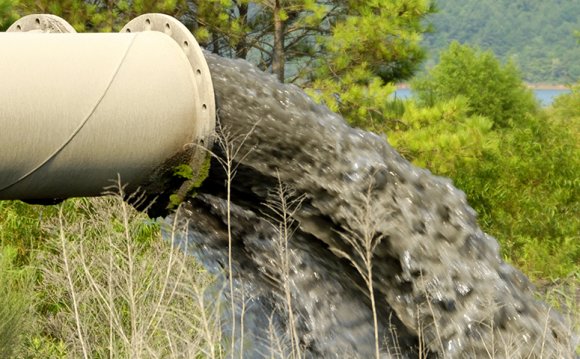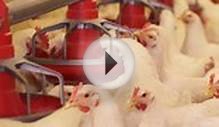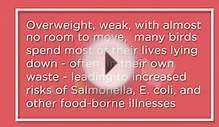
Factory farming is an unsustainable method of raising food animals that squeezes large numbers of chickens or livestock into one facility. In order to keep the animals under these stressful and unhealthy living conditions, factory farms rely on routine doses of antibiotics, which are contributing to the rise in antibiotic resistant bacteria that can make people sick.
Factory farms are not compatible with a safe and wholesome food supply – it’s time to get rid of factory farms.
Waste From Factory Farms: An Environmental and Public Health Crisis
Small, diversified farms that raise animals as well as other crops have always used manure as fertilizer without polluting water. The difference with factory farms is scale. They produce so much waste in one place that it must be applied to land in quantities that exceed the soil’s ability to incorporate it. And the big meat and chicken companies take no responsibility for this waste—leaving it up to their contract farmers to figure out how to dispose of it.
The vast quantities of manure from factory farms can — and do — make their way into the local environment where they pollute the air and water. Many municipal water systems in the Midwest, where many factory farms are located, must regularly implement costly clean up techniques to remove factory farm pollution from the water supply that would otherwise create a public health disaster. Likewise, pollution from factory farms run of into streams that feed into our major waterways, like the Chesapeake Bay, Great Lakes and Gulf of Mexico—contributing to dead zones that destroy aquatic ecosystems, recreation and livelihoods.
Factory Farms Have Replaced Independent Farmers
The number of dairy, hog and beef cattle producers in the United States has declined sharply over the last 20 years as the meatpacking, processing and dairy industries have driven farmers to increase in scale. The tiny handful of companies that dominates each livestock sector exerts tremendous control over the prices that farmers receive, and these companies micromanage the day-to-day operations of many farms. The real price that farmers receive for livestock has trended steadily downward for the last two decades. Most farmers barely break even. In 2012, more than half of farmers lost money on their farming operations. Learn more about corporate control in our food system.
Food Safety Risks
The stressful, crowded conditions of factory farms make it easy for disease to spread, which can also lead to food safety risks. When thousands of beef cattle are packed into feedlots full of manure, bacteria can get on their hides and then into the slaughterhouses. Contamination on even one animal can contaminate thousands of pounds of meat inside a slaughterhouse. In 2010, the crowded, unsanitary conditions at two Iowa egg companies caused a recall of more than half a billion potentially Salmonella-tainted eggs.
What’s worse is that our government, at the urging of the biggest companies, is trying to essentially deregulate poultry inspections, and they aim to do the same for other types of meat. Company inspectors are replacing knowledgeable and trained government inspectors, and line speeds are increasing, making it nearly impossible to closely inspect all the birds headed for processing.
RELATED VIDEO












